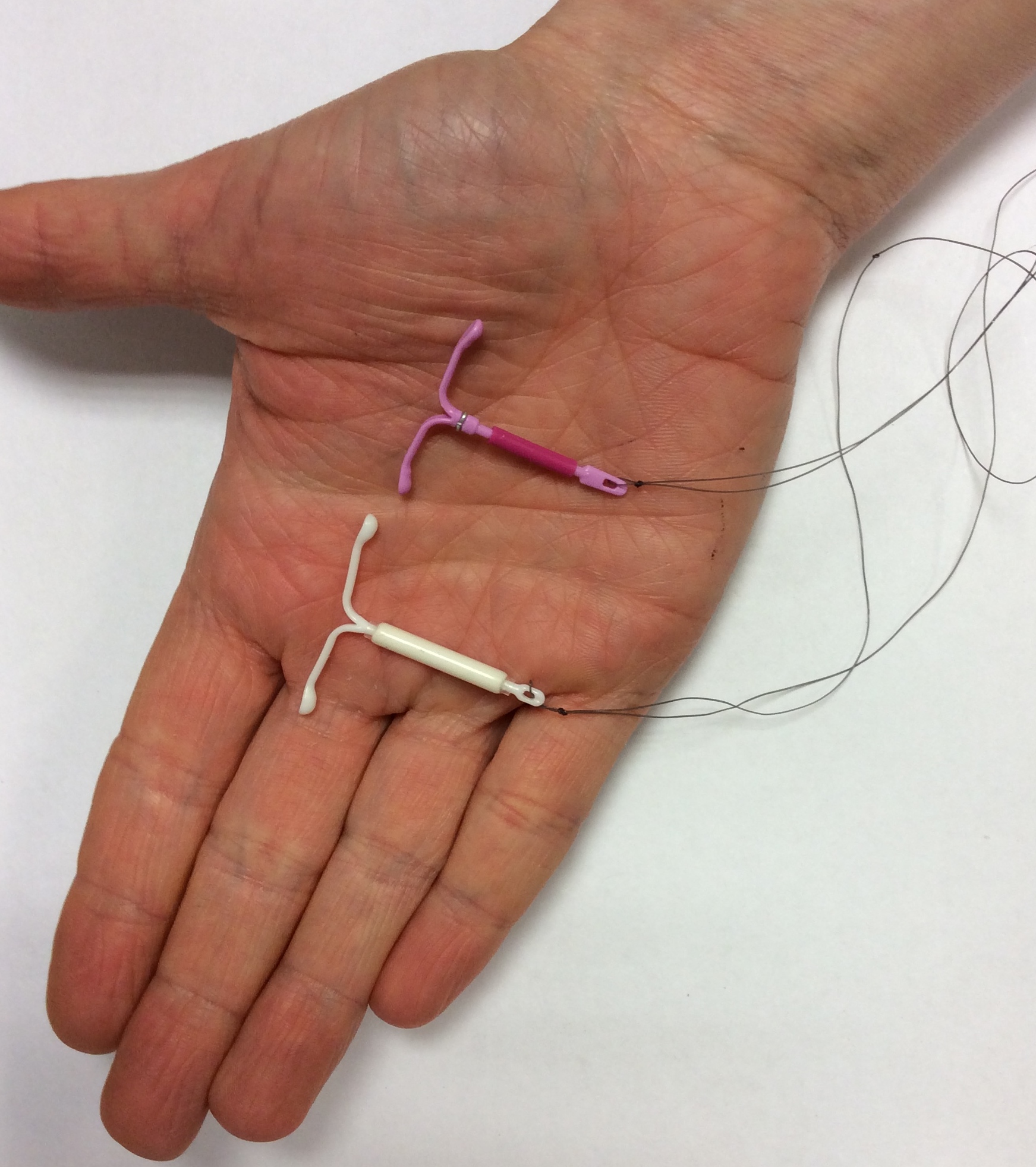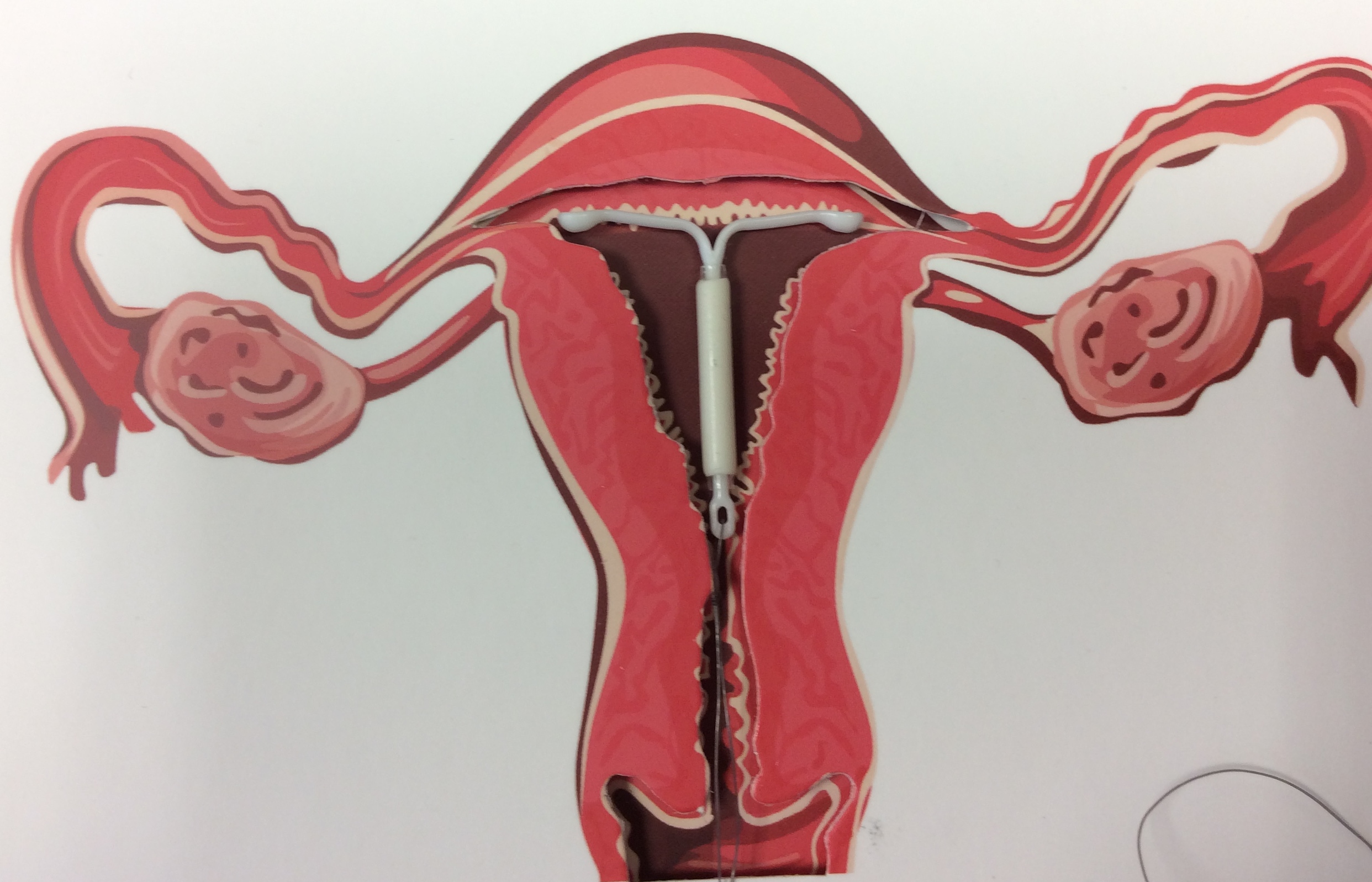Sexual Health (young people)
The IUS (hormonal coil)
There are four methods of long-acting reversible contraception (LARC) to choose from; contraceptive injection, the contraceptive implant, the intrauterine device (IUD or non hormonal coil) and the intrauterine system (IUS or hormonal coil). This summary is about IUS (hormonal) coil.
The benefit of LARCs are that they are “fit and forget” methods so once fitted or given, women are protected from getting pregnant until they need to replace them or choose to have them removed.
An Intrauterine system (IUS) is a small, plastic device very similar to an IUD, which also sits in the womb. It releases a hormone called progesterone.
There are two brands used in the UK – Mirena and Jaydess. The most popular is the Mirena and is often referred to by its brand name. As a method of contraception the IUS is more than 99% effective. Less than one in every 100 women who use Mirena will get pregnant in five years, and less than one in 100 who use Jaydess will get pregnant in three years (NHS Choices 2015).
A Mirena lasts for 5 years, and a Jaydess (which is a bit smaller and releases a smaller amount of hormone) lasts for 3 years. Unlike the IUD, a hormonal IUS cannot be used for emergency contraception.
Stefanie would like to hear personal experiences of women who are using the coil.
Stefanie would like to hear personal experiences of women who are using the coil.
An IUS does not offer any protection against sexually transmitted infections. If there is any possibility of infection, condoms should be used as well.
Why do people choose to have an intrauterine system fitted? People told us that they found it hard to remember to take the pill every day or needed to stop using the pill because of medical reasons such as high blood pressure or medications for other conditions like epilepsy or HIV (see more on epilepsy and contraception).
The women we interviewed got advice and information about hormonal and non-hormonal coils - from their doctors, or from sexual health clinics. Leaflets gave them the pros and cons of each method and helped them know what to expect after being fitted with an IUS (possible bleeding and period-like pain for a few days). None of the women we interviewed had used a IUS (only IUDs) – if you would like to tell us about your experiences of IUS please contact info@hexi.ox.ac.uk for more information.
People often think that only women who have been pregnant can use an IUD or IUS. This is not true, IUD and IUS are safe and effective options for nearly all women, regardless of whether they've had children.
Explains that she has been discussing with doctors the possibility of having a coil fitted and that she didn't know you could have one before having children. (Actor)
Explains that she has been discussing with doctors the possibility of having a coil fitted and that she didn't know you could have one before having children. (Actor)
(The accompanying video and audio clips are played by an actor)
I know with the IUD, I've been thinking about getting an IUD because in the past the doctor at the Family Planning clinic said that they sometimes use that now in women that haven't had children. It's becoming more common.
I know there's a risk with that, there's a small risk when they're inserting it, you can get infections and damage to the womb but I think that's quite a small risk. But that's something to think about
Have you talked to your doctor?
About getting an IUD? We talked in general but they sort of said I have a think about it and they've got special sessions there, so I haven't decided. I've got a friend that's got one and I'm going to talk to her about it before I decide.
Do you have any reason to believe that there may be a problem if you use it?
Well like I prefer not to be using condoms for the sake of sexual pleasure and also because it can be unreliable. I'd rather have a method that, you know, I knew was reliable but I don't particularly want to use a contraceptive pill. Because of my high blood pressure in our family anyway and so there's something like, when you get older as well it's not so advisable. So the doctor thought that that would be a good method for me.
I mean I didn't know until, I thought, until I'd discussed it with the doctor, I didn't think that you could have an IUD unless you'd had children, for example. And they said oh no, you can, more and more people do, that kind of thing, so yeah, there could be more knowledge.
Some of the women we talked to were concerned about using an IUS. Most women using the IUS have less bleeding each month because of the hormone secreted by the IUS, and irregular or no bleeding at all is also possible with the IUS method.
Some women are not able to use an IUS for medical reasons. Natasha was told that her womb is an odd shape. This means that there are limits to what contracpetion she can use and her ability to get pregnant and have children is affected too.
She felt that the gynaecologist treated her as an oddity when the ultrasound showed that her womb is shaped like a heart. She felt very lonely at the time but felt nurses were nicer than doctors.
She felt that the gynaecologist treated her as an oddity when the ultrasound showed that her womb is shaped like a heart. She felt very lonely at the time but felt nurses were nicer than doctors.
What is the name of the condition?
Last reviewed January 2016
Last updated January 2016
Copyright © 2024 University of Oxford. All rights reserved.




